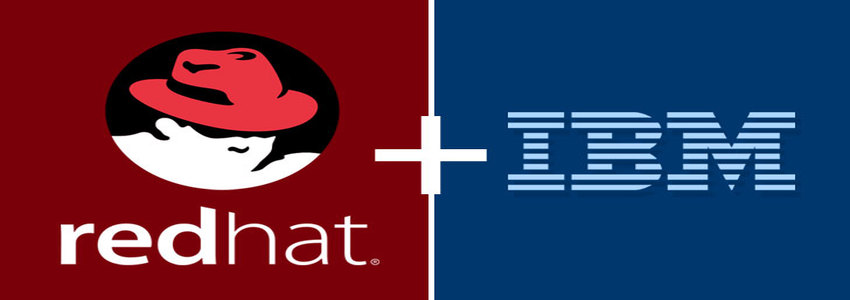This weekend IBM announced plans to purchase a majority stake in Red Hat for the combination of cash and debt valued at ~$34B. This values Red Hat at $190/share. According to IBM’s CEO, this move is designed to put them in a leadership position in the hybrid cloud landscape. In IBM’s vision, the hybrid cloud (or having resources in several different cloud provider’s ecosystems), is going to be the next evolution in cloud computing, and one that will play to IBM’s newly-acquired strengths.
While before the announcement IBM was not a major player in this space, it is clear that IBM intends to be a major player in cloud computing technologies, as it appears to be trying to catch up with the major public cloud providers: Amazon Web Services (AWS), Google Cloud Platform (GCP) and Microsoft’s Azure. Currently, IBM doesn’t compete directly with the public cloud providers, IBM appears to be making this move in anticipation of a future where customers wish to have multi-cloud footprints and take advantage of the best offerings of each of them, and it believes Red Hat’s IP and popularity among IT departments will enable them to win in that space.
Google appeared to be making a similar bet at Google Cloud Next ‘18 when it announced a hybrid Kubernetes cluster that would be able to have nodes in the cloud and on-premises, which would allow for a combination of a hybrid private/public cloud environment.
Red Hat recently acquired CoreOS, and thereby also acquired Tectonic (Kubernetes-based container-management platform) and Quay (container registry). Red Hat also recently released Red Hat Atomic (an OS focused on containerized workloads, but now defunct in favor of CoreOS’s superior product). Red Hat had been positioning itself as a leader in the container and orchestration landscapes. With IBM’s purchase, IBM can succeed in that role. It will no longer be possible for practitioners to ignore IBM’s moves in this space as it holds such a popular collection of IP.
IBM sold its PC manufacturing business to Lenovo in 2005, with the goal of becoming a services company rather than a hardware company. From the early 2000s to the present day, IBM has been pitching its Watson language processing platform to investors and customers alike, with middling success. With the acquisition of Red Hat, IBM appears to be pivoting again. IBM will now be undeniably in the conversation about major trends in docker, Kubernetes, and cloud computing.
